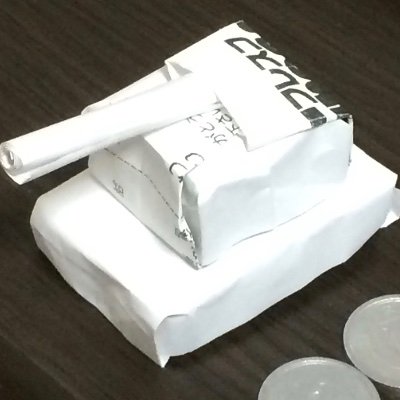結果
| 問題 | No.1420 国勢調査 (Easy) |
| コンテスト | |
| ユーザー |
 cureskol cureskol
|
| 提出日時 | 2022-12-09 14:32:48 |
| 言語 | C++17 (gcc 15.2.0 + boost 1.89.0) |
| 結果 |
AC
|
| 実行時間 | 45 ms / 2,000 ms |
| コード長 | 6,872 bytes |
| 記録 | |
| コンパイル時間 | 2,433 ms |
| コンパイル使用メモリ | 218,420 KB |
| 最終ジャッジ日時 | 2025-02-09 06:50:46 |
|
ジャッジサーバーID (参考情報) |
judge1 / judge5 |
(要ログイン)
| ファイルパターン | 結果 |
|---|---|
| sample | AC * 2 |
| other | AC * 30 |
ソースコード
#pragma region template
#pragma GCC optimize("Ofast")
#include <bits/stdc++.h>
using namespace std;
using ll=long long;
using ld=long double;
using vi=vector<int>;
using vll=vector<ll>;
using pi=pair<int,int>;
using pll=pair<ll,ll>;
#define overload2(a,b,c,...) c
#define overload3(a,b,c,d,...) d
#define overload4(a,b,c,d,e,...) e
#define overload5(a,b,c,d,e,f,...) f
#define TYPE1(T) template<typename T>
#define TYPE2(T,U) template<typename T,typename U>
#define TYPE(...) overload2(__VA_ARGS__,TYPE2,TYPE1)(__VA_ARGS__)
#define TYPES1(T) template<typename... T>
#define TYPES2(H,T) template<typename H,typename... T>
#define TYPES(...) overload2(__VA_ARGS__,TYPES2,TYPES1)(__VA_ARGS__)
#define REP4(i,s,n,d) for(int i=(s);i<(n);i+=(d))
#define REP3(i,s,n) REP4(i,s,n,1)
#define REP2(i,n) REP3(i,0,n)
#define REP1(n) REP2(tomato,n)
#define REP(...) overload4(__VA_ARGS__,REP4,REP3,REP2,REP1)(__VA_ARGS__)
#define RREP4(i,n,s,d) for(int i=(n)-1;i>=s;i-=d)
#define RREP3(i,n,s) RREP4(i,n,s,1)
#define RREP2(i,n) RREP3(i,n,0)
#define RREP1(n) RREP2(tomato,n)
#define RREP(...) overload4(__VA_ARGS__,RREP4,RREP3,RREP2,RREP1)(__VA_ARGS__)
#define FOR4(a,b,c,d,v) for(auto [a,b,c,d]:v)
#define FOR3(a,b,c,v) for(auto [a,b,c]:v)
#define FOR2(a,b,v) for(auto [a,b]:v)
#define FOR1(a,v) for(auto a:v)
#define FOR(...) overload5(__VA_ARGS__,FOR4,FOR3,FOR2,FOR1)(__VA_ARGS__)
#define AFOR4(a,b,c,d,v) for(auto&[a,b,c,d]:v)
#define AFOR3(a,b,c,v) for(auto&[a,b,c]:v)
#define AFOR2(a,b,v) for(auto&[a,b]:v)
#define AFOR1(a,v) for(auto&a:v)
#define AFOR(...) overload5(__VA_ARGS__,AFOR4,AFOR3,AFOR2,AFOR1)(__VA_ARGS__)
#define CFOR4(a,b,c,d,v) for(const auto&[a,b,c,d]:v)
#define CFOR3(a,b,c,v) for(const auto&[a,b,c]:v)
#define CFOR2(a,b,v) for(const auto&[a,b]:v)
#define CFOR1(a,v) for(const auto&a:v)
#define CFOR(...) overload5(__VA_ARGS__,CFOR4,CFOR3,CFOR2,CFOR1)(__VA_ARGS__)
#define ALL(v) v.begin(),v.end()
#define RALL(v) v.rbegin(),v.rend()
#define SORT(v) sort(ALL(v))
#define RSORT(v) sort(RALL(v))
#define REVERSE(v) reverse(ALL(v))
#define UNIQUE(v) SORT(v),v.erase(unique(ALL(v)),v.end())
TYPES(T) void input(T&... a){ (cin>>...>>a); }
#define DECLARE(T,...) T __VA_ARGS__;input(__VA_ARGS__);
#define INT(...) DECLARE(int,__VA_ARGS__)
#define STR(...) DECLARE(string,__VA_ARGS__)
#define LL(...) DECLARE(long long,__VA_ARGS__)
#define CHR(...) DECLARE(char,__VA_ARGS__)
#define DBL(...) DECLARE(double,__VA_ARGS__)
#define VI(n,v) vi v(n);cin>>v;
#define VLL(n,v) vll v(n);cin>>v;
TYPE(T) istream&operator>>(istream&is,vector<T>&v){
for(auto&a:v)cin>>a;
return is;
}
TYPE(T) ostream&operator<<(ostream&os,const vector<T>&v){
if(&os==&cerr)os<<"[";
REP(i,v.size()){
os<<v[i];
if(i+1<v.size())os<<(&os==&cerr?",":" ");
}
if(&os==&cerr)os<<"]";
return os;
}
TYPE(T,S) istream&operator>>(istream&is,pair<T,S>&p){
cin>>p.first>>p.second;
return is;
}
#ifdef __LOCAL
#include <debug>
#else
#define debug(...) void(0)
#endif
void print(){ cout << '\n'; }
TYPES(T,Ts) void print(const T& a,const Ts&... b){
cout<<a;
(cout<<...<<(cout<< ' ',b));
cout << '\n';
}
TYPE(T) using pq=priority_queue<T>;
TYPE(T) using pqg=priority_queue<T,vector<T>,greater<T>>;
TYPE(T) T pick(queue<T>& que){assert(que.size()); T a=que.front();que.pop();return a;}
TYPE(T) T pick(pq<T>& que){assert(que.size()); T a=que.top();que.pop();return a;}
TYPE(T) T pick(pqg<T>& que){assert(que.size()); T a=que.top();que.pop();return a;}
TYPE(T) T pick(stack<T>& sta){assert(sta.size()); T a=sta.top();sta.pop();return a;}
string YES(bool f=true){return (f?"YES":"NO");}
string Yes(bool f=true){return (f?"Yes":"No");}
string yes(bool f=true){return (f?"yes":"no");}
constexpr int INF=1e9+7;
constexpr ll LINF=ll(1e18)+7;
constexpr ld EPS=1e-10;
vi iota(int n){vi a(n);iota(ALL(a),0);return a;}
TYPE(T) vector<pair<T,int>> query_sort(const vector<T>&v){
vector<pair<T,int>> res(v.size());
REP(i,v.size())res[i]={v[i],i};
SORT(res);
return res;
}
TYPE(T) T rev(T a){ REVERSE(a);return a; }
TYPE(T) void fin(T a){cout<<a<<endl;exit(0);}
TYPE(T) bool chmax(T &a,T b){return (a<b&&(a=b,true));}
TYPE(T) bool chmin(T &a,T b){return (a>b&&(a=b,true));}
TYPES(T,Ns) auto make_vector(T x,int n,Ns ...ns){
if constexpr(sizeof...(ns)==0)return vector<T>(n,x);
else return vector(n,make_vector<T>(x,ns...));
}
bool in(const ll S,const int a){return (S>>a)&1;}
int popcount(const ll S){return __builtin_popcountll(S);}
#pragma endregion template
template<typename X>
struct GroupXor {
using value_type = X;
static constexpr X op(const X &x, const X &y) noexcept { return x ^ y; }
static constexpr void Rchop(X&x, const X&y){ x^=y; }
static constexpr void Lchop(const X&x, X&y){ y^=x; }
static constexpr X inverse(const X &x) noexcept { return x; }
static constexpr X power(const X &x, long long n) noexcept { return (n&1?x:0); }
static constexpr X unit() { return X(0); }
static constexpr bool commute = true;
};
template<typename AbelGroup>
class PotentialUnionFind{
using T=typename AbelGroup::value_type;
int n,num;
vector<int> sz,parent;
vector<T> potential; // parent[x] を基準とした時の x の値
public:
PotentialUnionFind()=default;
PotentialUnionFind(int n):n(n),num(n),sz(n,1),parent(n,0),potential(n,AbelGroup::unit()){
assert(AbelGroup::commute);
iota(parent.begin(),parent.end(),0);
}
pair<int,T> from_root(int x){
if(x==parent[x])return {x,AbelGroup::unit()};
auto [r,add]=from_root(parent[x]);
parent[x]=r;
AbelGroup::Rchop(potential[x],add);
return {r,potential[x]};
}
int leader(int x){ return from_root(x).first; }
bool same(int x,int y){
assert(0<=x and x<n and 0<=y and y<n);
return leader(x)==leader(y);
}
bool merge(int x,int y,T d){
// potential[y]-potential[x]=d にする
// 矛盾する場合は変更はせず false を返す
assert(0<=x and x<n and 0<=y and y<n);
auto [rx,dx]=from_root(x);
auto [ry,dy]=from_root(y);
AbelGroup::Rchop(d,dx);
AbelGroup::Rchop(d,AbelGroup::inverse(dy));
if(rx==ry)return d==AbelGroup::unit();
if(sz[rx]<sz[ry]){
swap(rx,ry);
d=AbelGroup::inverse(d);
}
sz[rx]+=sz[ry];
parent[ry]=rx;
potential[ry]=d;
num--;
return true;
}
optional<T> diff(int x,int y){
// x を基準とする
auto [rx,dx]=from_root(x);
auto [ry,dy]=from_root(y);
if(rx!=ry)return nullopt;
return AbelGroup::op(dy,AbelGroup::inverse(dx));
}
int size(const int x){
assert(0<=x and x<n);
return sz[leader(x)];
}
int count()const{
return num;
}
};
int main(){
ios::sync_with_stdio(false);
cin.tie(nullptr);
int n,m;cin>>n>>m;
PotentialUnionFind< GroupXor< int > > uf(n);
REP(m){
INT(a,b,y);a--;b--;
if(!uf.merge(a,b,y))fin(-1);
}
REP(i,n)cout<< uf.from_root(i).second <<"\n";
}
